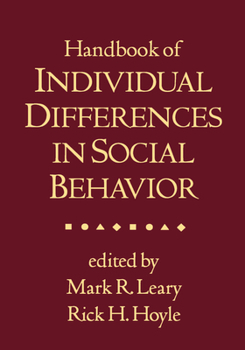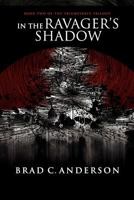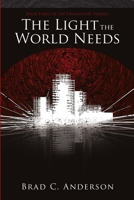Handbook of Individual Differences in Social Behavior
Select Format
Select Condition 
More by Brad C. Anderson
Book Overview
How do individual differences interact with situational factors to shape social behavior? Are people with certain traits more likely to form lasting marriages; experience test-taking anxiety; break the law; feel optimistic about the future? This handbook provides a comprehensive, authoritative examination of the full range of personality variables associated with interpersonal judgment, behavior, and emotion. The contributors are acknowledged experts who have conducted influential research on the constructs they address. Chapters discuss how each personality attribute is conceptualized and assessed, review the strengths and limitations of available measures (including child and adolescent measures, when available), present important findings related to social behavior, and identify directions for future study.
Format:Hardcover
Language:English
ISBN:1593856474
ISBN13:9781593856472
Release Date:June 2009
Publisher:Guilford Publications
Length:624 Pages
Weight:2.85 lbs.
Dimensions:1.4" x 6.9" x 10.0"
Customer Reviews
5 customer ratings | 5 reviews
There are currently no reviews. Be the first to review this work.






















